MercoPress. South Atlantic News Agency
Tag: Spain People Party
-
Monday, May 29th 2023 - 19:50 UTC
General election in Spain in July following the disastrous showing for Socialists in regional voting; Mercosur alert
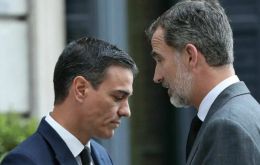
Spain is set to hold an early general election on July 23, Prime Minister Pedro Sanchez announced on Monday. The announcement comes after Sanchez Socialist Party suffered serious setbacks to the conservative opposition in regional elections held on Sunday.
-
Monday, October 24th 2016 - 10:43 UTC
Rajoy on course to a minority government; Socialists decide to abstain in confidence vote
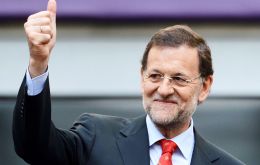
Spain’s conservative leader Mariano Rajoy was on course to secure a second term in power for his People’s Party (PP) on Sunday after his Socialist rivals agreed to abstain in a looming confidence vote, ending 10 months of political deadlock. Spain has been stuck in political limbo following national elections in December and June which left no single party with a majority, paralyzing institutions and threatening to derail an economic recovery.
-
Monday, June 20th 2016 - 06:15 UTC
Spain heading for another hung parliament, and with no clear possible coalitions
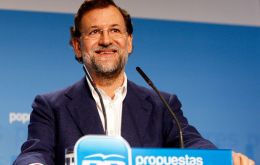
Spain is likely to repeat its indecisive election of December when it returns to the polls next weekend, according to survey results from three major newspapers, signaling that the country‘s political limbo is set to linger.
-
Thursday, May 5th 2016 - 11:57 UTC
Spanish elections campaign for a new parliament takes off 10 June
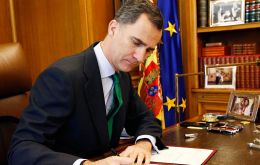
Spain's King Felipe VI signed the decree dissolving parliament following December's inconclusive general election. As no political parties were able to coalesce their support into a coalition government in time for the deadline, new elections will be held on June 26.
-
Thursday, January 14th 2016 - 06:33 UTC
Socialist becomes Spain's parliament speaker; no agreement yet on new government
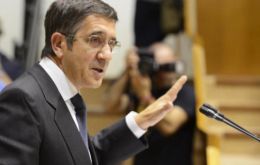
Spain's parliament held its first session Wednesday, with lawmakers from four main parties taking their seats at a time of political turmoil. Lawmakers picked a Socialist, Patxi Lopez, a former head of the regional government of the northern Basque Country, as parliamentary speaker, in the first pact between rival parties still engaged in talks to form a government since last month's inconclusive election.
-
Monday, December 21st 2015 - 07:14 UTC
Spain's left-right draw ends two-party system and marks time of coalitions
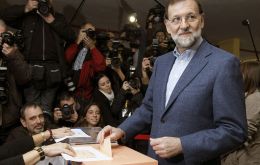
Spain is heading for a period of difficult coalition-building after Sunday’s elections in which Prime Minister Mariano Rajoy's conservatives came first, but were far short of a majority and with no obvious coalition partner after the centrist Ciudadanos (Citizens) did worse than expected, finishing fourth.
-
Monday, May 25th 2015 - 07:47 UTC
Spaniards are furious and 'traditional parties' get beaten in regional elections
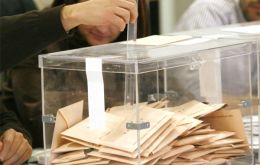
Spain's ruling People's Party (PP) took a battering on Sunday's regional and local elections after voters punished Prime Minister Mariano Rajoy for four years of severe spending cuts and a string of corruption scandals. In a test of the national mood ahead of general elections expected in November, the PP suffered its worst result in more than 20 years to herald an uncertain era of coalition as new parties rose to fragment the vote.
-
Monday, April 20th 2015 - 23:12 UTC
Rajoy admits the Rato case impacts on his party's support ahead of elections
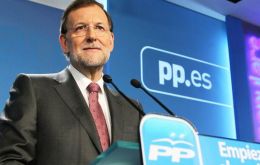
Voters in Spain's Valencia region, a bastion of conservatism for two decades, are likely to desert Prime Minister Mariano Rajoy's party in droves in May's regional election, a poll published on Sunday found, in a taste of nationwide politics to come.
-
Friday, August 2nd 2013 - 03:39 UTC
Rajoy admits in Parliament mishandling corruption scandal, but won’t resign
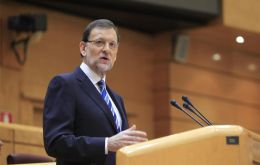
Spanish Prime Minister Mariano Rajoy apologised on Thursday for mishandling a major corruption scandal, but denied he or his conservative People's Party, PP, accepted illegal payments and rejected opposition calls to step down.
-
Tuesday, November 22nd 2011 - 00:11 UTC
Spanish president-elect Rajoy will only say he has mandate for austerity measures
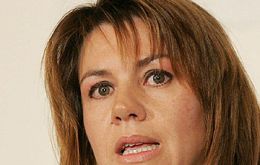
President-elect Mariano Rajoy resisted pressure on Monday to disclose his plans for rescuing Spain from economic disaster, keeping anxious Spaniards and impatient investors on edge following his election triumph.
